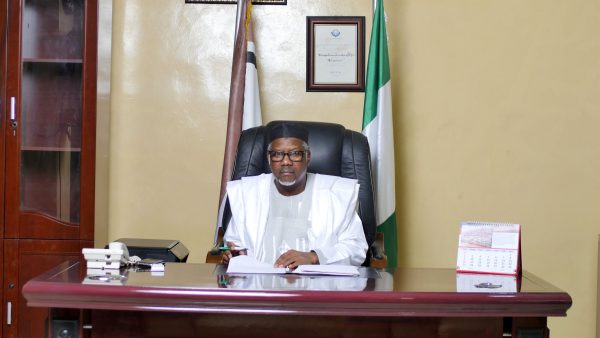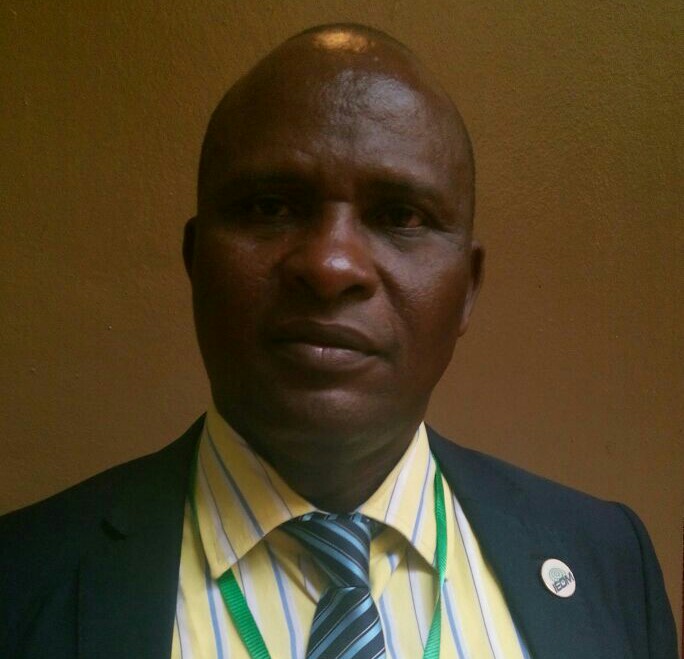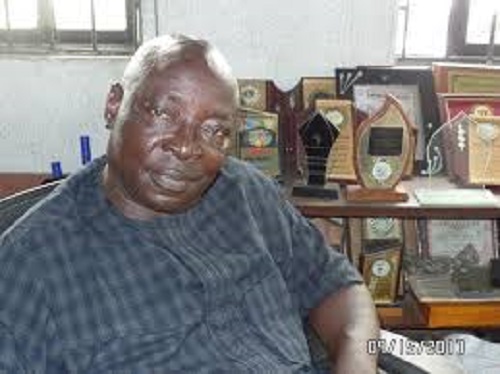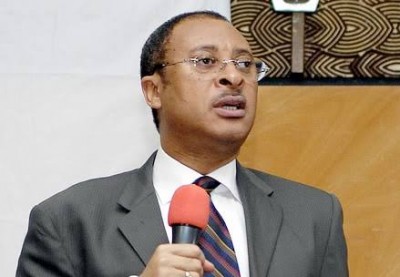How Manufacturing Sector Enhance Nigeria’s GDP – MAN President
Engr. Mansur Ahmed is the President of Manufacturers Association of Nigeria (MAN). In this interview with MMS Plus he reveals his aspirations for MAN under his leadership, highlights the major challenges facing manufacturers in the country and proposes the headway. He also disclosed some strategic steps that could see the nation’s manufacturing sector contribute up to 30% of the Gross Domestic Product (GDP), rather than the present paltry 10%.
Excerpts:
It’s barely two months since you emerged the new President of MAN. What are your aspirations for the association and the entire manufacturing sector in Nigeria under your tenure?
I’m the tenth President of the Association. I believe it is an honour and privilege to head this association because the nation’s economy can’t grow inclusively and provide the kind of sustainability that the citizens need without a strong productive sector. The manufacturing sector is at the heart of that production sector.
MAN has a major responsibility to grow the production sector. In many developed countries the manufacturing sector contributes up to about 30% of the Gross Domestic Product (GDP) of the economies. In Nigeria, the manufacturing sector hardly contributes up to 10%; so there is a huge gap that must be filled. The only way to fill that void is to open up the economy by providing opportunities for investors particularly in the manufacturing sector and develop policies and regulations that facilitate the growth of the sector. Special attention should also be paid to the use of local domestic grown input in the sector either as raw materials, semi-processed items or manufactured input. The nation’s economy should be able to grow by harnessing the resources already available in the country.
Fortunately, Nigeria is rich in all these resources. We have a huge agricultural sector that can provide all the raw materials for a large number of manufacturing activities, ranging from food processing to pharmaceuticals, industrial goods, among others. Nigeria has this massive opportunity and the nation also has the market that should enable manufacturing thrive because of the massive population who can be consumers before we talk about export to earn foreign exchange. The reason we have a lot of problem with imports into the country is because the import market is huge as a result of the population and the demand for imports is high but the local production is low. In spite of government efforts to restrict imports, the high volume of imports persists. This is an area that MAN continues to stress so that the Federal Government consistently churns out policies that ensure the country improves its local manufacturers. This can also be achieved by providing adequate incentives for the local materials to be produced at the quantity and prices required to make the manufacturing sector competitive with regards to imports.
Today, the trend in the global economy is regional integration and expanded trade. Countries have succeeded because they have exploited opportunities for trade to export their products and generate foreign exchange (forex). Unfortunately, in Nigeria 90% of the forex earned via export comes from crude oil. This explains why the government is happy when the global crude oil price goes up and we get into serious economic challenges when it plummets as it often does. The nation’s economic stability has become very volatile because of this situation. The nation also faces double tragedy as the import capacity and prices of goods and services continues to fluctuate as a result of these challenges. These are some of the problems that the manufacturing sector faces in Nigeria.
What are the policies and initiatives that MAN would pursue under your leadership?
We must recognize that for the private sector to function effectively, it must work with the government to ensure that the government plays the role that it should play to generate the economic activity that supports the private sector. The government should be a strong facilitator and regulator because the market cannot be allowed to operate the way it wants. The government should also be in the fore-front to support policies and initiatives that would generate competitiveness in the sector.
As MAN President, I intend to advocate for policies that are supportive for the manufacturing sector. We need policies that create more opportunities for members and limit the risks that the members take. We will continue to explore this and pursue it very vigorously and the meeting we had with the Nigerian Shippers’ Council (NSC) is a starting point because the Council is one of the major regulatory agencies of government especially on the areas that affect manufacturing activities.
Recall that no economy thrives except the manufacturing sector is competitive in terms of its cost, size and the manner in which it operates and its productivity; so one of the issues we would pursue is competitiveness within the sector and in the entire nation’s economy. We would work with the various government agencies responsible for developing competitiveness in order to ensure that our members become more competitive. We would also stimulate our members to be more competitive; perhaps competitive in cost, prices, quality and service delivery.
In order to achieve these goals we have highlighted, one of the major factors is the transportation infrastructure. The nation’s transport infrastructure is very bad, therefore we would continue to call on the government to do more to modernize and expand the transport infrastructure in the country. We need to strengthen the existing infrastructure and diversify because we can’t rely on just the roads. The railways and waterways would have to be developed. There would also be need to utilize other ports in the country and not just the Lagos ports. The Eastern ports have to be utilized as the Executive Secretary of the Shippers’ Council pointed out during his speech. However, the problem is that the Eastern port isn’t competitive when you take other factors into consideration.
The government must be able to provide very strong and specific incentives that will allow Nigerian importers for raw materials and spare-parts to operate the Eastern seaports. This also requires multimodal transport system that guarantees some degree of linkage from the major ports to these business hubs, otherwise people may import and spend much more money trucking the goods to the final destination.
You’ve mentioned the challenge of poor transport infrastructure. How could the situation in Apapa be resolved because the bad roads have been responsible for the inaccessibility of the ports leading to increased demurrage fees and high cost of trucking?
We must first recognize the fact that the government is working assiduously to resolve this problem. There have been concerted efforts by the government and concerned private sector operators to strengthen the road network and expand other modes of transport from the port system. The problem now is that the work has been too slow because it started about two years ago and it’s moving at a snail’s speed. The roads should also be expanded to ease the flow of traffic so that the cost to and from the ports would reduce. The cost of transportation in our manufacturing activities is between 35%-40% but there is no country in the world that can have a competitive economy with that kind of transport cost. However, I believe that there is a visible effort on the part of the government to work on that. The development of the rail system, expansion of several road networks as well as the development at the waterways operations could change the situation positively very soon, but we want the whole process expedited.
The Federal Government is also coming up with Standards Operating Procedures (SOPs) for trucking in the country. How relevant is this to the manufacturers in Nigeria?
SOPs are always very important in ensuring that systems whether in transport or production is consistent. SOPs introduce some consistency and MAN has no problem with initiatives that make the transport system more consistent and coherent. However, our worry is that this development shouldn’t lead to an increase in the cost of transportation which is already the highest in the world in terms of transport cost component in production activities. Anything that increases the transport cost would only make things worse for manufacturers in the country.
We would cooperate with the government to setup ideal operating procedures to bring about proper regulation that would ensure the system works well. We would also engage our members to comply with these procedures when they are established. As we introduce SOPs, we must also recognize that the most important thing is the inadequate transport infrastructure in the country.
We must continue to invest in infrastructure and this is primarily the responsibility of the government. I agree with the Executive Secretary of NSC, Mr. Hassan Bello who has noted that there are several ways through which the private sector could play roles via Public-Private Partnerships (PPPs) but essentially, even when you have PPPs, the responsibility for providing such services rests on the government. PPPs only allow the government to share the cost as well as the risks and benefits of the service.
I was impressed to see all MAN executives adorn Nigerian attires during the courtesy visit by Shippers’ Council. Is this part of efforts to promote Made-In-Nigeria products and how do you intend to get more Nigerians patronize indigenous products?
This is a major purpose and advocacy of the association. Clearly, the more Nigerians consume Made-In-Nigeria products the more our market would expand and this would enable us expand our services and be competitive. We have discussed with several other parties such ands the Raw Materials Research and Development Council, Nigerian Content Development and Monitoring Board (NCDMB) and other stakeholders to promote Made-In-Nigeria goods.
It is important also that Nigerian trade policies do take this factor seriously so that we are able to not only produce of our market but also export. I’m very excited because this is an issue that would be very critical especially as we begin to confront the prospects of the African Continental Free Trade Agreement (AfCTA). What you observed from our dress style shows that we are leading by example. You can’t give what you don’t have.
Few years ago, the Federal Government came up with an automobile policy to boost indigenous participation in assembling vehicles. How has the automobile industry fared under this policy?
Since the introduction of that automobile policy there has been some new investments in that sector so to that extent and because the intention was to open up the sector and encourage investments in the sector; the policy has worked to an extent. I believe that with time and given some level of consistency in upholding the policy, the industry would observe positive transformation.
Some incentives have been given in the automobile sector in terms of imports for some components, spare parts and equipments; but this has to be sustained. We also need to link that sector with the Small and Medium-sized Enterprises (SMEs) and encourage the SMEs to begin to produce some of the materials needed in the automobile industry.
In the 1970’s, Nigeria had a robust automobile sector and secondary industries began to grow around as people began producing batteries, plastics and other necessary materials in the sector. Unfortunately, due to lack of consistency in the policies, that sector collapsed. Now, we are trying to do it again but we must note the importance of consistency in policies and helping the sector grow must be pertinent. This is the responsibility of the government. Last week, I was reading a statement by the Ghanaian government particularly on the issue of tax policies. I observed that the Ghanaian government had realized that if it doesn’t help several industries grow, what revenue made from all sorts of taxation will not help the nation much because the monies would be spent importing items they weren’t producing. The key is to provide incentives that would make several industries grow because the benefits of this is much higher than the revenue the country can make from levies and taxes at a lower level.
At MAN, our expectation is that as the nation makes progress with initiatives like the Economic Recovery and Growth Plan (ERGP) the government is looking at specific sectors and introducing clinics for each industry to grow and prosper. What we expect is continuity and consistency in policies to ensure that these industries are nurtured till the point where they are able to stand firm and be very competitive.








